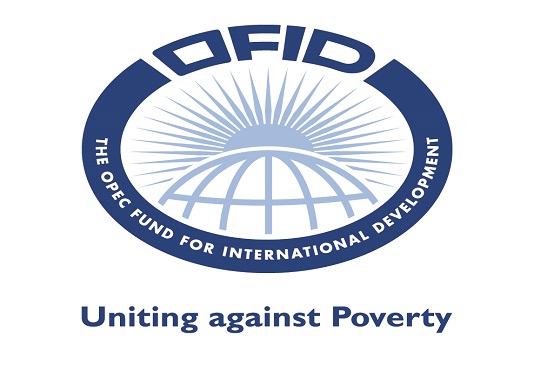Around the world leaders are seeking for ways to quickly adopt and leverage on digitalization to deliver strategic objectives. While it is crucial to align strategy to win in the digital era of work, it is as important to recognize that this only represents one part of the equation. The other part, and often overlooked, is the fact that in less than three years, by 2020, we will be leading a workforce made of five generations. Never before has traditional corporate leadership architecture has had to deal with these two shifts happening at the same time – digital world of work and 5 generations leadership savannah (the Gen-Five).
While there is no one size fits all on digital world of work and what all generations want, from a CEO desk these must observed by asking three fundamental questions: what are we expecting from our women and men to deliver? What type of environment do we need to create to ensure everyone strive? What is the organization prepared to do for those joining fresh from school and those thinking about retirement? The latter will set a tone of an organizational point of view on how it values its employees.
As leaders in private and public sectors ponder different ways to adapt their leadership approaches, here are the five strategies on how to lead five generations in the digital world of work:
First, understand generational differences but make sure not to get stacked there. Understandably, leaders want to know, with high degree of certainty, what makes all these generations different and at the same time trying to understand how to bridge and find common patterns. Looking at the statistics, the newest employees entering the workforce today will not only be joining their parents or grandparents but in other parts of the world where retirement age has been increased great-grandparents.
In her HBR article, Facebook’s Head of People, Ms. Lori Goller wrote: “all generations are looking for jobs that give them a sense of fulfilment or meaning, allow them to be authentic and play to their strengths, offer opportunities for learning and growth, and empower them to take the initiative.” Across the board, caring organizations is what all generations from all walks of life are expecting, and in return, they will put in their best performance.
Second, leaders need to embrace clarity to drive results. It is often assumed that employees need to left alone and all will be fine. This is far from the truth as clarity remains a number desire for all generations. People want to know where they are heading. It is therefore crucial for leaders to ensure that they communicate directly to the workforce on what’s important, what matters most and what is expected of everyone in the company. When Microsoft CEO, Mr. Satya Nadella was asked, “What are the key qualities that you really think we’ll need from our talent in the future?” He responded that “there are smart people, but there’s a distinction between smart people that bring clarity and energy versus confusion.”
Third, leaders need to influence cross functional knowledge sharing. Organizations find themselves with abundance of knowledge from new comers and seasoned employees and this precious commodity need to be carefully distributed in line with organizational strategic ambitions. One way to best disseminate knowledge is through mentoring. While in the past this was associated with older mentoring younger – there is another side of mentoring that is becoming a must-have in this new world of work – younger generations mentoring older generations and vice versa. An increasing number of organizations have introduced this reverse mentoring where younger employees mentor older employees on key areas in the digital world of work such as a power of social media for strategic impact.
Fourth, there is a need for a fundamental shift on how organizations integrate engagement into talent management. According to Gallup 2016 study, engaged employees comprise only around 30% of the workforce. This decline is not sustainable and need to be addressed through effective talent engagement. Organizations like Starbucks have managed to show how effective employee engagement will result into better talent management and overall sustainability of the organizations. They are mobilizing all generations working at Starbucks by focusing on giving employees “reasons to believe in their work and that they are part of a larger mission.”
So instead of waiting for annual talent review forums, organizations should seek ways to provide employees with continuous experience that will keep them engaged and provide a path for future growth.
Fifth, reward based on collaboration. In the G-five digital world of work, meaningful and process-led collaboration is a must have. Rewarding employees is one of the catalysts to ensure that the change of new behavior or performance is achieved within a particular timeframe. So if what is expected is meaningful collaboration across generations, it is important to ensure that team work is encouraged, measured and rewarded. As with anything new, it takes time and efforts for change to stick – it is, therefore, recommended that organizations introduce simple steps to recognize effective team-work and collaboration with an emphasis on different generations assigned to work on joint projects.
In the digital world of work, technology alone cannot make people more engaged. Organizations keen to strive in these expansive and endless generational savannahs need to spend enough time and resources to understand generational differences, embrace clarity, influence cross-functional knowledge sharing, integrate employee engagement into talent management and reward based on collaboration. For these ideas to work they must be embraced and led by you: the Leadership Teams.
About the Author
Simon Rey is an international Strategist, Educator and Designer from Tanzania, currently working as Group Head at Ecobank. He oversees Talent, Learning and Organizational Development for the Ecobank Group. Simon is also the founding Director of Africa’s largest corporate university – the Ecobank Academy. He writes this in his personal capacity.


